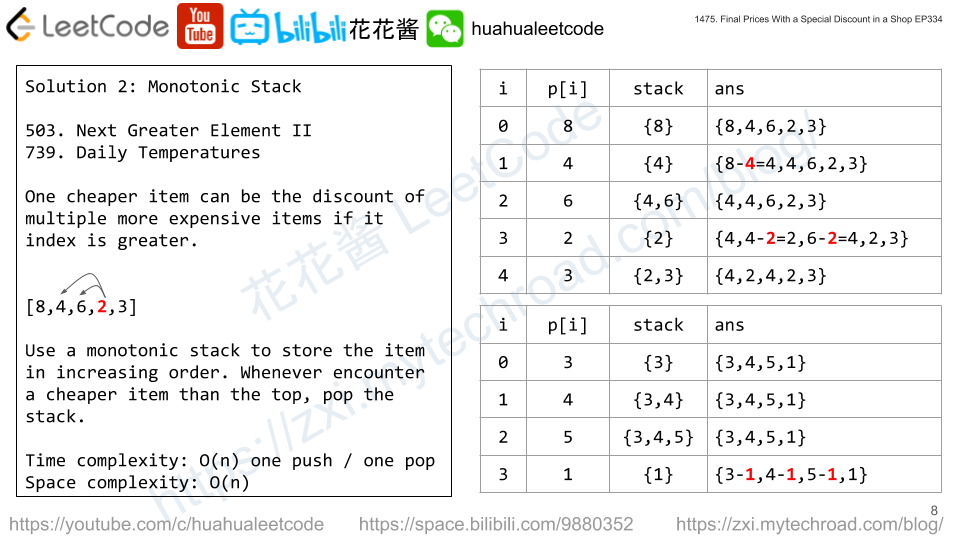Given an array nums. We define a running sum of an array as runningSum[i] = sum(nums[0]…nums[i]).
Return the running sum of nums.
Example 1:
Input: nums = [1,2,3,4] Output: [1,3,6,10] Explanation: Running sum is obtained as follows: [1, 1+2, 1+2+3, 1+2+3+4].
Example 2:
Input: nums = [1,1,1,1,1] Output: [1,2,3,4,5] Explanation: Running sum is obtained as follows: [1, 1+1, 1+1+1, 1+1+1+1, 1+1+1+1+1].
Example 3:
Input: nums = [3,1,2,10,1] Output: [3,4,6,16,17]
Constraints:
1 <= nums.length <= 1000-10^6 <= nums[i] <= 10^6
Solution
Time complexity: O(n)
Space complexity: O(1)
C++
|
1 2 3 4 5 6 7 8 9 10 |
// Author: Huahua class Solution { public: vector<int> runningSum(vector<int>& nums) { vector<int> ans(nums); for (int i = 1; i < ans.size(); ++i) ans[i] += ans[i - 1]; return ans; } }; |
